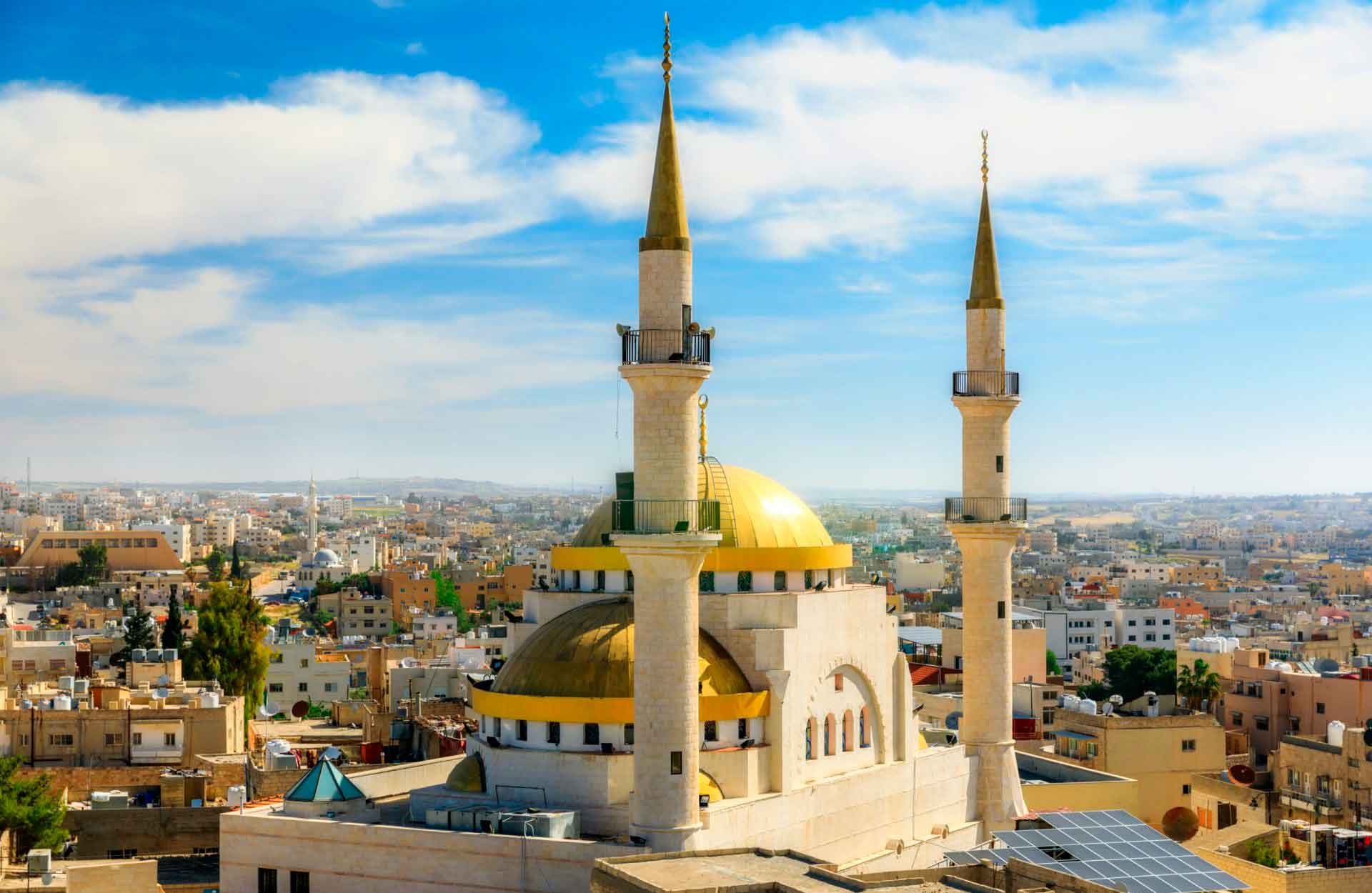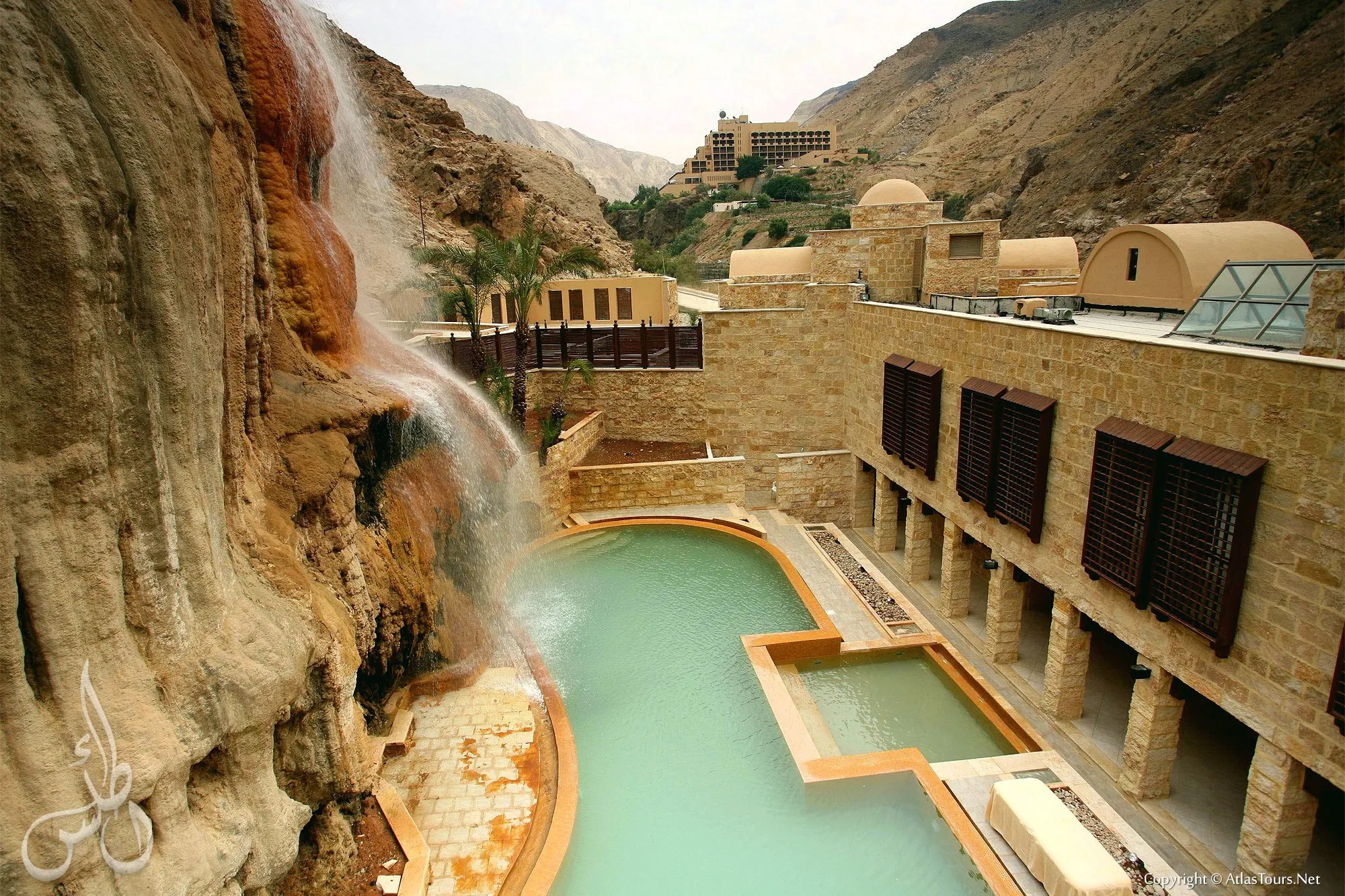



Madaba is an ancient town in Jordan, southwest of the capital Amman. It’s known for its 6th-century mosaic map of the Holy Land in the Greek Orthodox Church of St. George. The Madaba Archaeological Park preserves the mosaic-rich Church of the Virgin Mary and artifacts from the Hellenistic, Roman, Byzantine and Islamic eras. Northwest, the biblical hill of Mount Nebo overlooks the Jordan Valley and the Dead Sea. ― Google
Spring (March–May) and Autumn (September–November) are the most comfortable seasons — warm days and cool nights.
Summer (June–August) can get hot (30–35°C), but still pleasant due to Madaba’s elevation.
Winter (December–February) is cool and can be rainy, though less crowded.
From Amman:
~30–40 minutes by car (33 km)
Regular minibuses from Amman’s South Terminal Station
From Queen Alia Airport:
~25-minute drive — closer than Amman
From Dead Sea:
About 1 hour by road, often included in Dead Sea-Mount Nebo-Madaba day trips
St. George’s Greek Orthodox Church – Home to the famous Madaba Map, the oldest known mosaic map of the Holy Land (6th century AD)
Madaba Archaeological Park – Houses Roman roads, Byzantine mosaics, and remnants of ancient churches
Church of the Apostles – Contains a large and well-preserved floor mosaic
Madaba Museum – Displays mosaics, pottery, and artifacts from local archaeological finds
Mount Nebo (10-minute drive) – Believed to be where Moses viewed the Promised Land; offers panoramic views and ancient mosaics
La Storia Tourism Complex – Cultural museum with life-size dioramas of Biblical and Jordanian history
Handicraft centers – Mosaic workshops where you can see artisans at work or take a class
Explore historic churches and ruins – Madaba’s compact old town is walkable
View mosaics – Found in churches, parks, homes, and even sidewalks
Visit Mount Nebo for sunset – Incredible views over the Jordan Valley
Take a mosaic workshop – Learn traditional techniques from local artists
Shop for mosaics and ceramics – Great place for handmade souvenirs
Day trip combinations – Pair Madaba with Dead Sea, Mount Nebo, and Bethany Beyond the Jordan for a full historical circuit
Boutique hotels and guesthouses – Charming, family-run options in the town center
Mid-range hotels – Good value, often with breakfast included
Luxury option – Fewer, but a couple of upscale hotels or resorts in nearby Mount Nebo area
Peaceful countryside stays – Small lodges or Airbnb-style houses around Madaba’s hills
Traditional Jordanian cuisine: Mansaf, maqluba, grilled meats, and mezze
Popular eateries: Many cozy spots near St. George’s Church serving local food
Fresh baked goods: Local bakeries sell manakish (za’atar flatbread), spinach pies, and sweet pastries
Coffee & tea culture: Cafes serve Turkish coffee, mint tea, and cardamom-infused Arabic coffee
Madaba has a strong Christian heritage — one of the most religiously diverse and tolerant cities in Jordan
Friendly and welcoming locals, with a slower pace of life compared to Amman
The city is known for its artistic traditions, especially mosaics
Modest dress is respectful when visiting churches or religious sites
Many festivals and cultural events are held in summer celebrating local crafts, music, and food
Wear comfortable walking shoes – The old streets are cobbled
Bring small bills or cash – Many shops and cafés prefer it
Plan 3–4 hours to explore Madaba – Or stay overnight for a more relaxed visit
Combine with Mount Nebo for history and views
Early morning or late afternoon is best for photos and fewer crowds at St. George’s Church